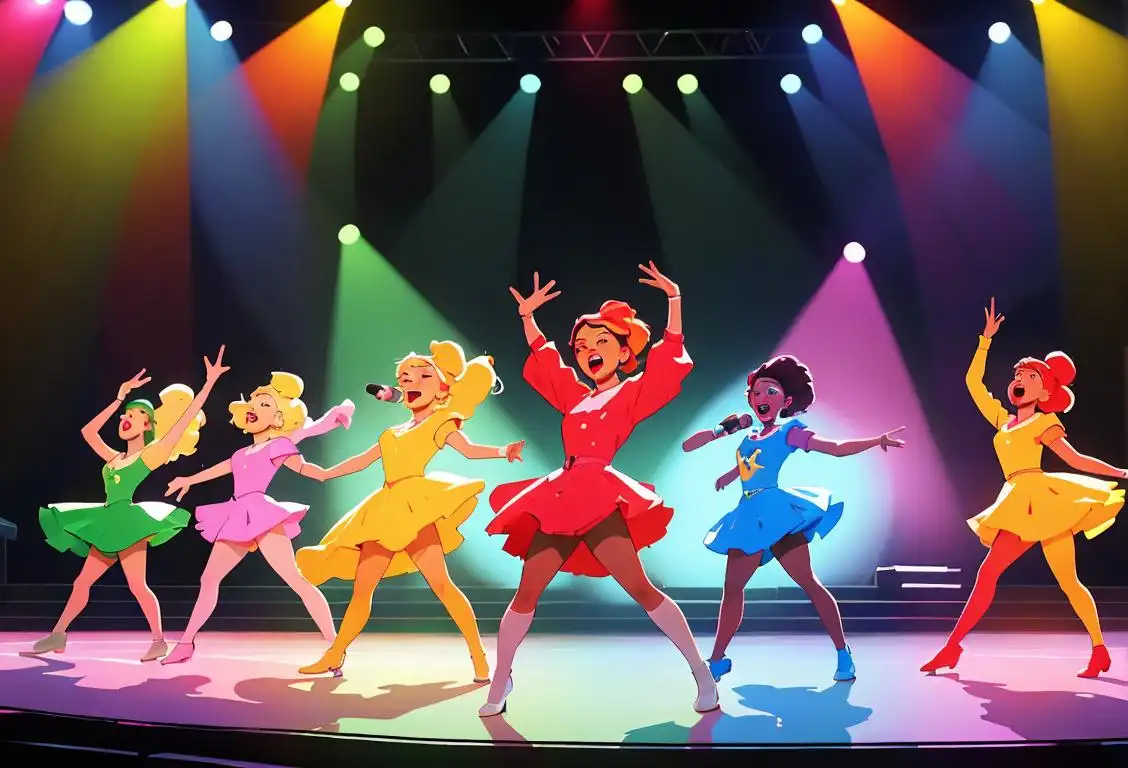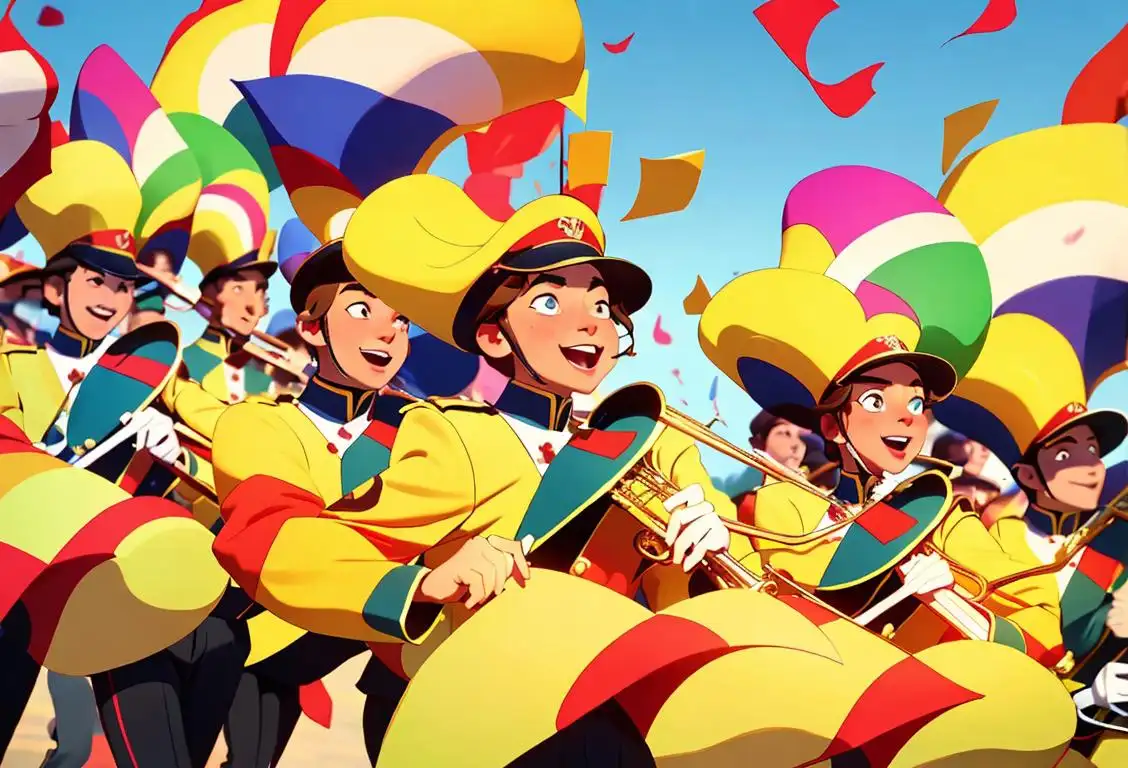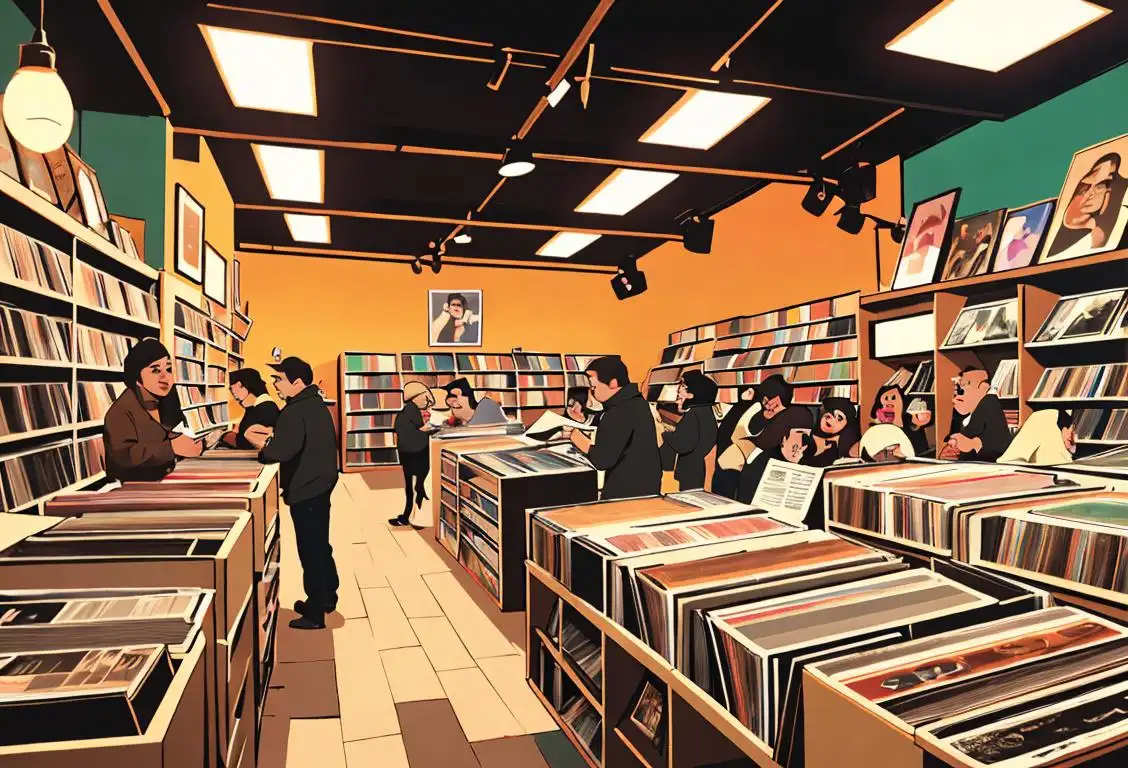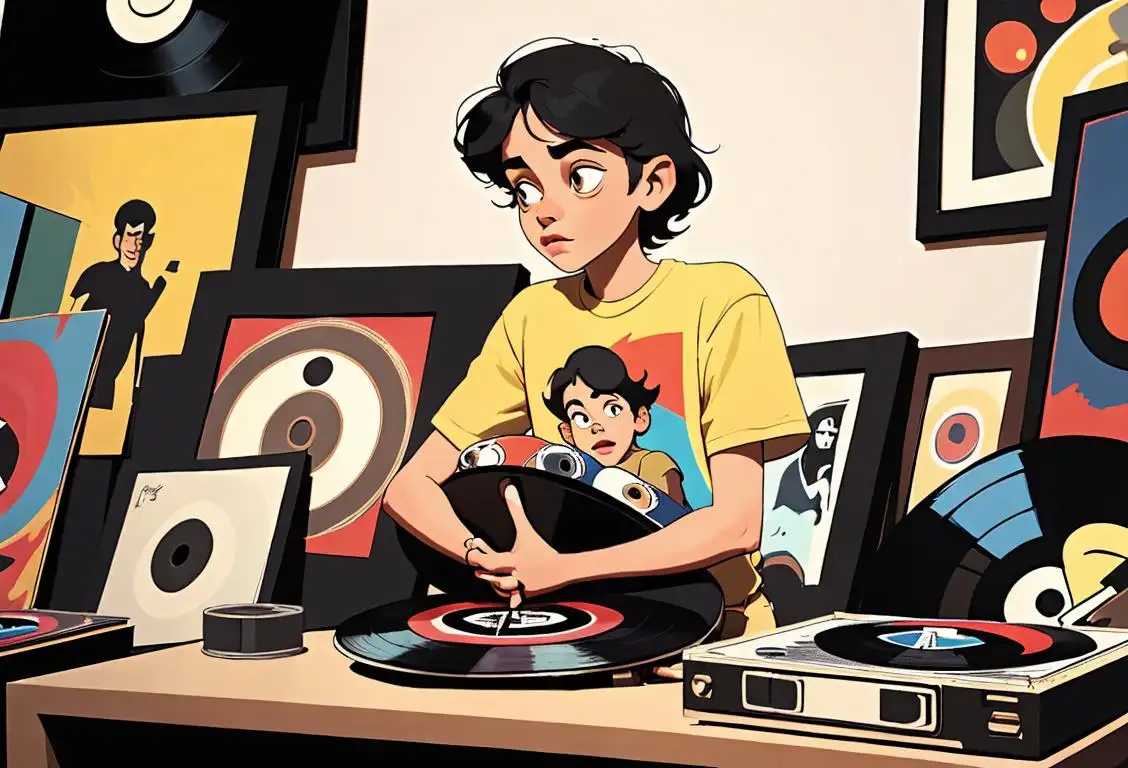National Buy An Instrument Day
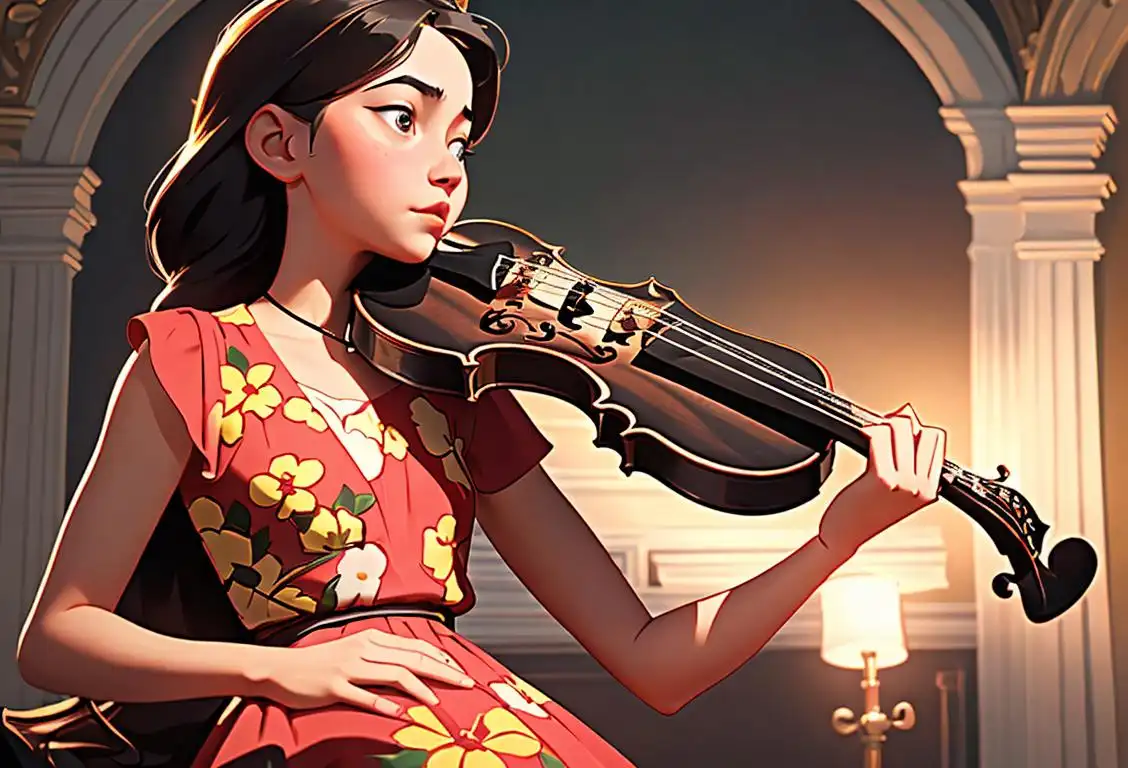
Welcome to the wonderful world of National Buy an Instrument Day! Get ready to tap your toes, strum your strings, and blow your horns as we explore the history and joy of this musical celebration. So grab your favorite air guitar and let's dive in!
When is Buy An Instrument Day?
It's national buy an instrument day on the 22nd May.
The Birth of National Buy an Instrument Day
Every passionate musician knows that finding the perfect instrument can be a life-changing experience. That's why on National Buy an Instrument Day, we celebrate the joy of acquiring new musical tools and unleashing our creative potential.
The origin of this marvelous holiday remains a mystery deep within the annals of the internet, but what we do know is that music lovers from all walks of life embrace this day with open arms (and wallets). Whether you're a seasoned maestro or a beginner just starting your musical journey, National Buy an Instrument Day is the perfect opportunity to explore new sounds, upgrade your gear, or even discover a hidden talent.
How to Celebrate National Buy an Instrument Day
Now that you've marked this harmonious holiday on your calendar, it's time to plan your celebration. Here are a few suggestions to make the most of National Buy an Instrument Day:
- Visit your local music store and browse through their incredible selection of instruments. Feel the weight of a guitar in your hands, marvel at the intricate design of a violin, or give those piano keys a gentle tap.
- Try out different instruments. Don't limit yourself to what you already know; explore the vast world of music. Who knows, you might find your soul instrument!
- Support young musicians. Whether it's a family member, friend, or local talent, consider buying an instrument for a budding musician. You'll not only foster their passion but also spread the love for music.
- Share your new instrument on social media. Nothing beats the excitement of unveiling your latest musical addition to the world. Snap a photo, record a short video, and let the world know about your newfound love.
A Fun Fact to Jazz Up Your Day
Did you know that the famous composer Ludwig van Beethoven began losing his hearing in his twenties? Despite this tremendous challenge, he continued to create timeless masterpieces and compositions. Beethoven's resilience serves as an inspiration to all musicians, reminding us that the love for music transcends any obstacles we may face.
History behind the term 'Buy An Instrument'
1555
The first recorded use of the term
The term 'buy an instrument' was first recorded in 1555. It referred to the act of purchasing a musical instrument, a tool used for playing or creating music. In this early period, musical instruments were often made by skilled craftsmen and were considered valuable possessions.
c. 3000 BCE
The Birth of Musical Instruments
Humans have been making music for thousands of years, and the earliest known musical instruments date back to around 3,000 BCE. These primitive instruments were typically made from natural materials like bones, shells, and rocks, and were used to produce simple tones and rhythms.
4000 BC
Early Origins
The history of the term 'buy an instrument' can be traced back to around 4000 BC when humans first started creating musical instruments. During this time, early civilizations such as the Mesopotamians, Egyptians, and Sumerians began crafting various instruments like flutes, drums, and lyres. These instruments served both cultural and religious purposes, and people often had to purchase or trade for them in order to enjoy the music and entertainment they provided.
18th century
Rise of affordable instruments
During the 18th century, there was a significant increase in the availability of affordable musical instruments. This was made possible by advancements in manufacturing techniques and the industrial revolution. The increased accessibility of instruments led to a greater number of people being able to buy and learn to play them.
500 BC
Trade Routes and Exchanges
By 500 BC, trade routes had developed between different societies, enabling the exchange of goods and cultural influences. This period saw the rise of mercantile activities and the establishment of marketplaces where individuals could buy and sell a variety of items, including musical instruments. As trade expanded, the availability of instruments increased, allowing more people to engage with and appreciate music.
c. 1500 BCE
The Rise of String Instruments
Around 1,500 BCE, ancient civilizations began to develop instruments with strings. The lyre, a stringed instrument with a resonating body and strings that were plucked or strummed, became popular in cultures such as Ancient Greece and Mesopotamia. String instruments provided a wider range of tones and allowed for more complex musical expression.
9th Century
Guilds and Craftsmanship
In the 9th century, guilds formed in Europe, which brought together artisans of various crafts, including instrument making. These guilds provided training and organization for skilled craftsmen, allowing them to improve their techniques and produce high-quality instruments. The establishment of guilds contributed to a more professional and regulated instrument market, with individuals having the opportunity to purchase finely crafted instruments.
c. 200 CE
Invention of the First Keyboard Instrument
The first keyboard instrument, called the hydraulis, was invented around 200 CE by the Ancient Greeks. It consisted of a series of pipes and valves that were controlled by a keyboard. The hydraulis was a precursor to modern-day organs and pianos, and its invention marked a significant development in the history of musical instruments.
1920s
Growing popularity of music education
In the 1920s, there was a surge in the popularity of music education, particularly in schools. It became common for students to receive formal music lessons and to learn to play an instrument as part of their education. This trend contributed to a higher demand for instruments, as more and more students had to buy an instrument to participate in music classes.
c. 900-1000 CE
Emergence of Musical Instrument Makers
During the Middle Ages, specialized craftsmen known as luthiers began to emerge. Luthiers were skilled in the art of making and repairing musical instruments, particularly stringed instruments like violins, guitars, and lutes. Their craftsmanship contributed to the growth and refinement of musical instruments, making them more accessible to musicians.
18th Century
Consumer Culture and Accessibility
The 18th century marked a significant shift in consumer culture, with the emergence of a middle class and increasing disposable income. This period saw a rise in instrument production, making music more accessible to a wider range of people. Instrument makers began mass producing instruments, resulting in lower prices and greater availability. This accessibility led to a surge in instrument purchases, as more individuals could now afford to buy their own instruments.
Mid-20th century
Instruments as cultural symbols
During the mid-20th century, musical instruments started to become important cultural symbols. The rise of popular music genres such as rock and roll created a sense of identity and rebellion associated with particular instruments. As a result, buying an instrument became not only a means of musical expression but also a way for individuals to connect with a specific cultural movement.
c. 1700-1800 CE
Industrial Revolution and Mass Production
The Industrial Revolution in the 18th and 19th centuries brought significant advancements in manufacturing techniques. Musical instrument production shifted from purely artisanal to more industrial methods, allowing for mass production. This enabled a wider range of people to buy instruments, making music more accessible to the general public.
20th Century
Retail Industry and Online Marketplaces
In the 20th century, the retail industry and the advent of online marketplaces revolutionized the way people purchased instruments. Music stores became popular destinations for musicians and enthusiasts, offering a wide range of instruments for sale. With the rise of the internet, online platforms emerged, providing convenient access to a vast array of instruments from all over the world. This digital transformation made buying an instrument easier than ever before by simply browsing and making a purchase with a few clicks.
Present day
Online instrument marketplaces
In the present day, the term 'buy an instrument' has evolved with the emergence of online marketplaces. These platforms make it easier than ever to purchase instruments from around the world. Furthermore, digital music technology has led to the development of virtual instruments that can be bought and downloaded instantly, eliminating the need for a physical instrument in some cases.
c. 1900s
Modern Instrument Retailers and E-commerce
With the rise of the internet and e-commerce in the late 20th century, the way people buy musical instruments has dramatically changed. Modern instrument retailers, both physical stores and online platforms, offer a vast selection of instruments catering to musicians of all levels and genres. This democratization of access to instruments has empowered countless aspiring musicians to pursue their musical passions.
Did you know?
Did you know that the famous composer Ludwig van Beethoven began losing his hearing in his twenties? Despite this tremendous challenge, he continued to create timeless masterpieces and compositions.Tagged
fun celebration musicFirst identified
22nd May 2015Most mentioned on
22nd May 2015Total mentions
21Other days
Stadium Concert And Had To Add Another Day
Marching Arts Day
Music Day
Record Store Day
Giggs Day
Dogg Day
Drummer Day
Sing Out Day
Album Day
Hate On Blackpink Day
